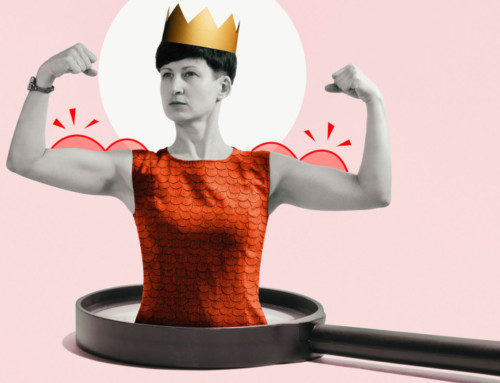75 Academic Strengths Examples and Academic Weaknesses: 2023
Discover the top 75 academic strengths examples to showcase in college interviews, academic weaknesses and academic tips for student careers in 2023.
Students tend to find that they have unique strengths and weaknesses that nobody else possesses. Everyone comes from a different background and everyone has different interests. These factors combine to generate your own academic strengths and weaknesses.
But what are some of the good examples of academic strengths to have and which examples of academic weaknesses should you be wary of?

23 Academic Strengths Examples
Academic strengths are traits that help you stand out from others in a college interview. These can be anything from being organized and punctual to having a knack for problem-solving or critical thinking.
Academic strengths help you excel in the classroom and can also be a great way to stand out on college applications.
Here are some of the most common student strengths that can assist you in completing a course faster or getting better grades than your peers.
- Complex problem solving
- Good writing skills
- Excellent research methods
- Technology skills
- Verbal subject articulation
- Communication Skills
- Strong organizational skills
- Independent thinking
- Ability to work under pressure
- Detail-orientation
- Lifelong learning attitude
- Flexibility and Adaptability
- Analytical/Critical-Thinking Skills
- Ability to learn and retain information quickly
- Software program knowledge
- Critically and analytically thinking
- Ability to lead a group or project
- High levels of discipline
- Self-motivation
- Creative problem-solving skills
- Logical Thinking
- Capacity to learn quickly and master new concepts
- Feedback listening skills
12 Academic Career Strengths Examples
Career strengths refer to the traits and abilities that make you an attractive job candidate when applying to potential employers. These include things like interpersonal skills, leadership abilities, and knowledge of software programs.

Here are some examples of career strengths that can help you excel in the job market:
- Adaptability and quick learning
- Excellent communication skills
- Leadership and team building skills
- Strong work ethic
- High levels of initiative
- Ability to collaborate with others
- Management skills
- Computer and technical skills
- Organization and time management
- Networking abilities
- Professionalism
- Project management skills
How to Answer Academic Interview Questions: What are your Academic Strengths?
When asked about academic strengths in an interview, it is important to highlight abilities that are relevant to the position or field of study. Example academic strengths may include knowledge and experience in research, writing, problem-solving, communication, and collaboration.
Don’t forget to mention any awards or academic honors that demonstrate your academic excellence or mastery of a particular subject. Mentioning academic projects or activities that you have completed successfully will also help you stand out in an academic interview.
Example Academic Strengths Interview Answer:
“My academic strengths include research, problem-solving, and writing. I have a strong track record of academic excellence and am a recipient of the National Merit Scholarship. I recently completed a research project on X topic that produced significant findings.”
Ultimately, your answer should demonstrate that you are a knowledgeable, capable academic with the skills necessary to succeed in the position or field of study.
10 Personal Examples of Academic Strengths
Personal academic strengths are an important part of any student’s success in school. Personal academic strengths help students to be successful in their studies and make the most out of their educational experience.

- Honesty is important because it allows you to be true to your goals even if you’re under pressure from other people.
- Kindness helps you become more approachable and teaches you to understand other people’s perspectives and ideas.
- Leadership gives you the ability to lead people, organize teams, and guide people to a common goal.
- Problem-solving helps you approach an issue with an analytical mindset so you can find the solution quickly and efficiently.
- Discipline allows you to muster up the mental courage to do the right things at the right time instead of procrastinating.
- Learning from failure ensures that you can study your failures so that you won’t repeat the same mistake in the future.
- Open-mindedness allows you to see things from different perspectives so you can gain new experiences and learn new skills.
- Creative thinking helps you look outside the box when you’re thinking of ideas or coming up with solutions for a problem.
- Taking criticism is also an important skill to have. You need to identify when others are giving constructive criticism, but you also need to know when to stop listening to people who are not offering good feedback.
- Time management can help you keep track of your schedule and your tasks so that you’re never late for something and that you can set realistic goals and expectations.
Academic Strengths and Weaknesses in Job Interviews
When being interviewed for a job, it is important to be prepared to discuss your academic strengths and weaknesses. When you are asked about these topics, it is important to be honest and provide examples.
When discussing your academic strengths, think of specific instances where you achieved success in school or college. Maybe you were chosen to receive a prestigious award, got straight As in an important subject, or achieved the highest grade on a test.
It is important to provide specific details and examples, so your interviewer can get a better idea of why you are successful in the academic realm.
When discussing your academic weaknesses, explain what you have done to improve or address the issue. For example, if you struggled in mathematics, maybe you received extra help from a tutor or researched strategies to improve your problem-solving skills.
It is important to explain how you have taken steps to become stronger in certain areas.
24 Examples of Academic Weaknesses
An academic weakness is a skill or area of knowledge that a student has difficulty with, compared to other students in the same age group.

Examples of academic weaknesses include:
- Struggling with time management and organization
- Difficulty staying focused during lectures or long studying periods
- Inability to process information as quickly as peers
- Poor academic writing skills
- Low score on standardized tests
- Difficulty memorizing facts and figures quickly
- Inability to comprehend complex academic texts
- Difficulty understanding abstract concepts or theories
- Poor public speaking skills
- Inability to adapt to changing academic environments
- Struggling with problem-solving tasks
- Poor test-taking skills
- Difficulties comprehending new concepts or material
- Overwhelming sense of perfectionism that can hinder progress
- Poor note-taking skills or lack of focus when taking notes
- Unwillingness to ask for help when needed
- Difficulty retaining information for long-term projects or exams
- Lack of confidence when speaking in public or presenting work
- Poor writing skills or difficulty expressing ideas in written form
- Inability to work well with others or complete group projects
- Low motivation when it comes to difficult or tedious tasks
- Impulsivity when it comes to answering questions in class or on tests
- Lack of knowledge in a particular subject area
- Inability to identify strengths and weaknesses within own work
7 Personal Examples of Academic Weaknesses
Personal academic weaknesses are downsides to your personality that can often cause problems in an academic environment. Most people have some weaknesses as nobody is perfect, but it’s possible to identify and cull your weaknesses to some degree if you’re aware of them.
- Impatience makes it difficult for you to stay put and wait for things to happen. Wanting to take action isn’t always a bad thing, but being impatient can cause issues for others.
- Intolerance can make it difficult for you to work with others. If somebody makes a mistake and you immediately get frustrated, then it can make group and team activities hard.
- Perfectionism can also cause issues, as it often leads to people having unrealistic expectations for themselves. This can lead to stress or depression, as well as making it difficult for you to accept constructive criticism.
- Procrastination means you won’t be able to focus on the work ahead of you since you’re always thinking about something else.
- Aggression can be good in some environments, but it creates discourse and an awkward atmosphere when it happens in an academic setting.
- Pride can make it difficult to accept criticism and setbacks. In academic settings, feedback is important for growth, but prideful people may find it hard to take that information and act on it.
- Laziness makes it very hard to stay motivated in an academic setting when there’s no external motivation from peers or a teacher.
Interview Questions about Academic Strengths and Weaknesses

What do you consider as your academic strengths?
My academic strengths include my ability to think critically, my dedication and motivation to excel in my studies, and my strong understanding of the material. I am highly organized and able to manage my time effectively, even when confronted with multiple deadlines.
How do you prioritize and manage your time when studying for exams?
When preparing for an exam, I prioritize my studying by first organizing my notes and materials in order of importance. Then, I set realistic goals with specific deadlines for each topic and make sure I stick to them. I also use a calendar to track my progress, so that I can ensure I am on track. Finally, I make sure to take regular breaks and reward myself when I complete a goal.
What techniques do you use to stay organized while in class?
When I am in class, I stay organized by writing down key points and jotting notes during lectures. This helps me to remember the material better, and makes it easier to refer back to at a later date. Additionally, I use color-coded notebooks to separate my notes and assignments by subject. This makes it easier to refer back to a specific topic or assignment quickly.
Do you have any strategies for overcoming your academic weaknesses?
My approach to overcoming my academic weaknesses is to recognize and accept them, then work on building my skills in those areas. For example, if I need to work on my math skills, I will set aside time each day to practice and review the concepts. Additionally, I take advantage of the
Do you have any tips for staying motivated when working on long-term projects?
First, I set smaller goals throughout the process and reward myself when I reach them. This helps to break down the project into manageable chunks and keeps me motivated.
Academic Strengths and Weaknesses FAQ
What are the best academic strengths to highlight in an interview?
The best academic strengths to highlight in an interview are: problem-solving, discipline, learning from failure, open-mindedness, creative thinking, taking criticism, and time management.
How to improve your academic weaknesses?
To improve your academic weaknesses, you need to identify what your weaknesses are and create an action plan for how you can address each one. You also need to practice self-care and create a balanced academic environment. Make sure you set attainable goals and break down tasks into achievable chunks.
What do Colleges see as academic strengths?
Colleges see academic strengths such as critical thinking, problem-solving, creativity, initiative, and academic achievement as important factors in determining whether someone is a good academic fit for their institution. Other factors include organization, communication, and time management skills.
We hope that you have learned something from these academic strengths and weaknesses. By identifying these skills and traits, you’ll have a better understanding of your positive traits and the qualities that you need to work on in order to succeed in an academic setting.





Leave A Comment